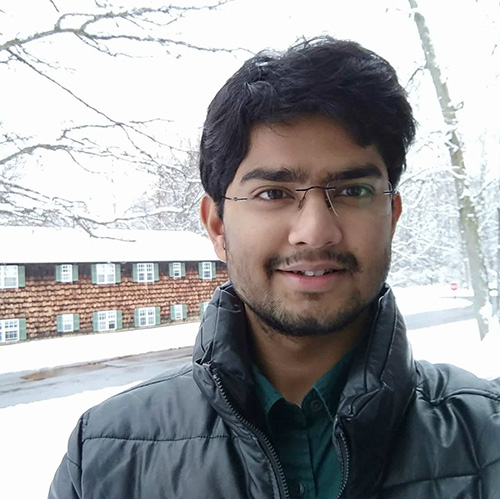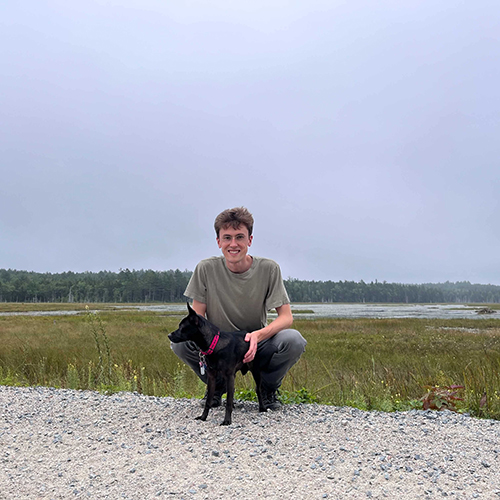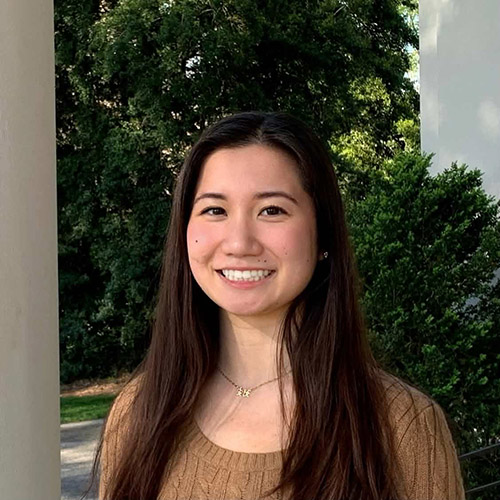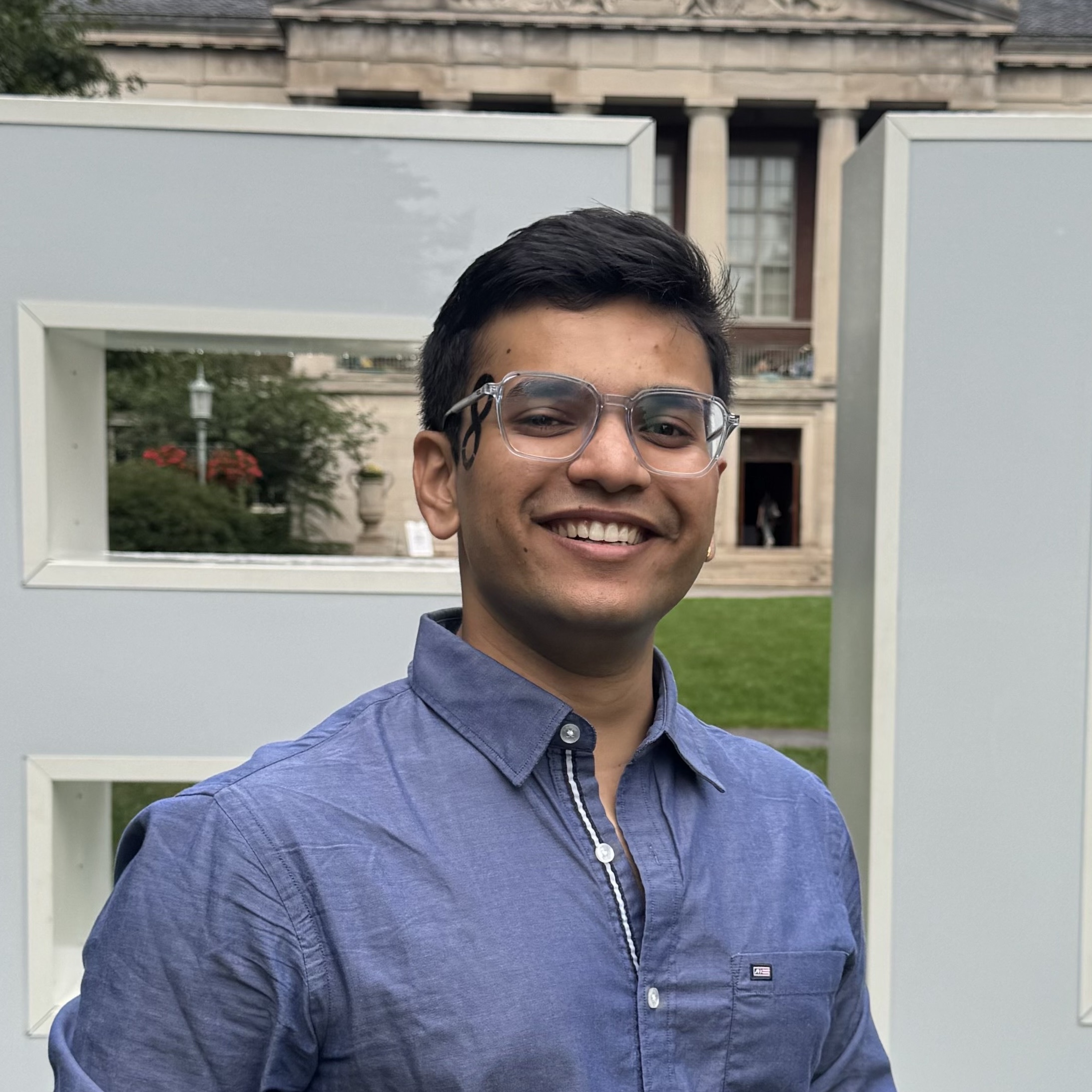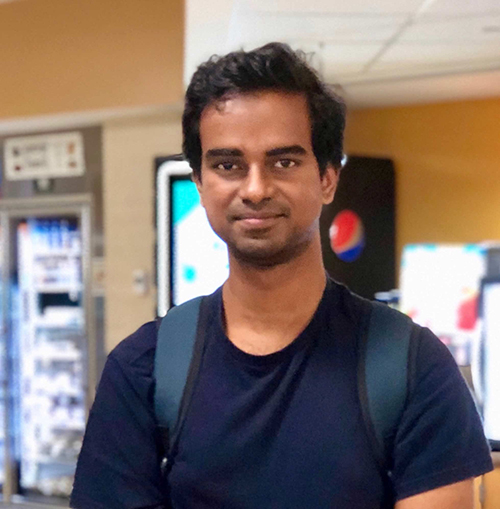Decomp
Traditional semantic annotation frameworks generally define complex, often exclusive category systems that require highly trained annotators to build. And in spite of their high quality for the cases they are designed to handle, these frameworks can be brittle to deviations from prototypical instances of a category.
The Decompositional Semantics Initiative (Decomp) is founded on the idea that semantic annotation should rather take the form of many simple questions about words or phrases in context that are (i) easy for naive native speakers to answer, thus allowing annotations to be crowd-sourced; and (ii) more robust than traditional category systems, thus allowing coverage of non-prototypical instances.
Decomp is supported by DARPA AIDA, DARPA KAIROS, and IARPA BETTER. It is a large project and so only research products authored by core FACTS.lab members are listed below. A full list of publications, presentations, and available data can be found at decomp.io.

Papers
- Gantt, William, Lelia Glass & Aaron Steven White. 2022. Decomposing and Recomposing Event Structure. Transactions of the Association for Computational Linguistics 10. 17–34.
@article{gantt_decomposing_2022,
title = {Decomposing and {Recomposing} {Event} {Structure}},
volume = {10},
issn = {2307-387X},
url = {https://doi.org/10.1162/tacl_a_00445},
doi = {10.1162/tacl_a_00445},
urldate = {2022-01-30},
journal = {Transactions of the Association for Computational Linguistics},
author = {Gantt, William and Glass, Lelia and White, Aaron Steven},
month = jan,
year = {2022},
pages = {17--34},
}- Stengel-Eskin, Elias, Kenton Murray, Sheng Zhang, Aaron Steven White & Benjamin Van Durme. 2021. Joint Universal Syntactic and Semantic Parsing. Transactions of the Association for Computational Linguistics 9. 756–773.
@article{stengel-eskin_joint_2021,
author = {Stengel-Eskin, Elias and Murray, Kenton and Zhang, Sheng and White, Aaron Steven and Van Durme, Benjamin},
title = "{Joint Universal Syntactic and Semantic Parsing}",
journal = {Transactions of the Association for Computational Linguistics},
volume = {9},
pages = {756-773},
year = {2021},
month = {08},
issn = {2307-387X},
doi = {10.1162/tacl_a_00396},
url = {https://doi.org/10.1162/tacl\_a\_00396},
eprint = {https://direct.mit.edu/tacl/article-pdf/doi/10.1162/tacl\_a\_00396/1955190/tacl\_a\_00396.pdf},
}- Vashishtha, Siddharth, Adam Poliak, Yash Kumar Lal, Benjamin Van Durme & Aaron Steven White. 2020. Temporal Reasoning in Natural Language Inference. In Findings of the Association for Computational Linguistics: EMNLP 2020, 4070–4078. Online: Association for Computational Linguistics.
@inproceedings{vashishtha_temporal_2020,
title = "Temporal Reasoning in Natural Language Inference",
author = "Vashishtha, Siddharth and
Poliak, Adam and
Lal, Yash Kumar and
Van Durme, Benjamin and
White, Aaron Steven",
booktitle = "Findings of the Association for Computational Linguistics: EMNLP 2020",
month = nov,
year = "2020",
address = "Online",
publisher = "Association for Computational Linguistics",
url = "https://www.aclweb.org/anthology/2020.findings-emnlp.363",
pages = "4070--4078"
}- Chen, Yunmo, Tongfei Chen, Seth Ebner, Aaron Steven White & Benjamin Van Durme. 2020. Reading the Manual: Event Extraction as Definition Comprehension. In Proceedings of the Fourth Workshop on Structured Prediction for NLP, 74–83. Online: Association for Computational Linguistics.
@inproceedings{chen_reading_2020,
title = "Reading the Manual: Event Extraction as Definition Comprehension",
author = "Chen, Yunmo and
Chen, Tongfei and
Ebner, Seth and
White, Aaron Steven and
Van Durme, Benjamin",
booktitle = "Proceedings of the Fourth Workshop on Structured Prediction for NLP",
month = nov,
year = "2020",
address = "Online",
publisher = "Association for Computational Linguistics",
url = "https://www.aclweb.org/anthology/2020.spnlp-1.9",
pages = "74--83"
}- White, Aaron Steven, Elias Stengel-Eskin, Siddharth Vashishtha, Venkata Subrahmanyan Govindarajan, Dee Ann Reisinger, Tim Vieira, Keisuke Sakaguchi, et al. 2020. The Universal Decompositional Semantics Dataset and Decomp Toolkit. In Proceedings of the 12th Language Resources and Evaluation Conference, 5698–5707. Marseille, France: European Language Resources Association.
@inproceedings{white_universal_2020,
address = {Marseille, France},
title = {The {Universal} {Decompositional} {Semantics} {Dataset} and {Decomp} {Toolkit}},
isbn = {979-10-95546-34-4},
url = {https://www.aclweb.org/anthology/2020.lrec-1.699},
abstract = {We present the Universal Decompositional Semantics (UDS) dataset (v1.0), which is bundled with the Decomp toolkit (v0.1). UDS1.0 unifies five high-quality, decompositional semantics-aligned annotation sets within a single semantic graph specification—with graph structures defined by the predicative patterns produced by the PredPatt tool and real-valued node and edge attributes constructed using sophisticated normalization procedures. The Decomp toolkit provides a suite of Python 3 tools for querying UDS graphs using SPARQL. Both UDS1.0 and Decomp0.1 are publicly available at http://decomp.io.},
language = {English},
booktitle = {Proceedings of the 12th Language Resources and Evaluation Conference},
publisher = {European Language Resources Association},
author = {White, Aaron Steven and Stengel-Eskin, Elias and Vashishtha, Siddharth and Govindarajan, Venkata Subrahmanyan and Reisinger, Dee Ann and Vieira, Tim and Sakaguchi, Keisuke and Zhang, Sheng and Ferraro, Francis and Rudinger, Rachel and Rawlins, Kyle and Van Durme, Benjamin},
month = may,
year = {2020},
pages = {5698--5707}
}- Stengel-Eskin, Elias, Aaron Steven White, Sheng Zhang & Benjamin Van Durme. 2020. Universal Decompositional Semantic Parsing. In Proceedings of the 58th Annual Meeting of the Association for Computational Linguistics, 8427–8439. Online: Association for Computational Linguistics.
@inproceedings{stengel-eskin_universal_2020,
address = {Online},
title = {Universal {Decompositional} {Semantic} {Parsing}},
url = {https://www.aclweb.org/anthology/2020.acl-main.746},
doi = {10.18653/v1/2020.acl-main.746},
abstract = {We introduce a transductive model for parsing into Universal Decompositional Semantics (UDS) representations, which jointly learns to map natural language utterances into UDS graph structures and annotate the graph with decompositional semantic attribute scores. We also introduce a strong pipeline model for parsing into the UDS graph structure, and show that our transductive parser performs comparably while additionally performing attribute prediction. By analyzing the attribute prediction errors, we find the model captures natural relationships between attribute groups.},
booktitle = {Proceedings of the 58th {Annual} {Meeting} of the {Association} for {Computational} {Linguistics}},
publisher = {Association for Computational Linguistics},
author = {Stengel-Eskin, Elias and White, Aaron Steven and Zhang, Sheng and Van Durme, Benjamin},
month = jul,
year = {2020},
pages = {8427--8439}
}- Govindarajan, Venkata, Benjamin Van Durme & Aaron Steven White. 2019. Decomposing Generalization: Models of Generic, Habitual, and Episodic Statements. Transactions of the Association for Computational Linguistics 7. 501–517.
@article{govindarajan_decomposing_2019,
title = {Decomposing {Generalization}: {Models} of {Generic}, {Habitual}, and {Episodic} {Statements}},
volume = {7},
url = {https://www.aclweb.org/anthology/Q19-1035},
doi = {10.1162/tacl_a_00285},
abstract = {We present a novel semantic framework for modeling linguistic expressions of generalization— generic, habitual, and episodic statements—as combinations of simple, real-valued referential properties of predicates and their arguments. We use this framework to construct a dataset covering the entirety of the Universal Dependencies English Web Treebank. We use this dataset to probe the efficacy of type-level and token-level information—including hand-engineered features and static (GloVe) and contextual (ELMo) word embeddings—for predicting expressions of generalization.},
journal = {Transactions of the Association for Computational Linguistics},
author = {Govindarajan, Venkata and Van Durme, Benjamin and White, Aaron Steven},
month = mar,
year = {2019},
pages = {501--517}
}- Vashishtha, Siddharth, Benjamin Van Durme & Aaron Steven White. 2019. Fine-Grained Temporal Relation Extraction. In Proceedings of the 57th Annual Meeting of the Association for Computational Linguistics, 2906–2919. Florence, Italy: Association for Computational Linguistics.
@inproceedings{vashishtha_fine-grained_2019,
address = {Florence, Italy},
title = {Fine-{Grained} {Temporal} {Relation} {Extraction}},
url = {https://www.aclweb.org/anthology/P19-1280},
abstract = {We present a novel semantic framework for modeling temporal relations and event durations that maps pairs of events to real-valued scales. We use this framework to construct the largest temporal relations dataset to date, covering the entirety of the Universal Dependencies English Web Treebank. We use this dataset to train models for jointly predicting fine-grained temporal relations and event durations. We report strong results on our data and show the efficacy of a transfer-learning approach for predicting categorical relations.},
booktitle = {Proceedings of the 57th {Annual} {Meeting} of the {Association} for {Computational} {Linguistics}},
publisher = {Association for Computational Linguistics},
author = {Vashishtha, Siddharth and Van Durme, Benjamin and White, Aaron Steven},
month = jul,
year = {2019},
pages = {2906--2919}
}- Poliak, Adam, Aparajita Haldar, Rachel Rudinger, J. Edward Hu, Ellie Pavlick, Aaron Steven White & Benjamin Van Durme. 2018. Collecting Diverse Natural Language Inference Problems for Sentence Representation Evaluation. In Proceedings of the 2018 Conference on Empirical Methods in Natural Language Processing, 67–81. Brussels, Belgium: Association for Computational Linguistics.
@inproceedings{poliak_collecting_2018,
address = {Brussels, Belgium},
title = {Collecting {Diverse} {Natural} {Language} {Inference} {Problems} for {Sentence} {Representation} {Evaluation}},
url = {https://www.aclweb.org/anthology/D18-1007},
doi = {10.18653/v1/D18-1007},
abstract = {We present a large-scale collection of diverse natural language inference (NLI) datasets that help provide insight into how well a sentence representation captures distinct types of reasoning. The collection results from recasting 13 existing datasets from 7 semantic phenomena into a common NLI structure, resulting in over half a million labeled context-hypothesis pairs in total. We refer to our collection as the DNC: Diverse Natural Language Inference Collection. The DNC is available online at https://www.decomp.net, and will grow over time as additional resources are recast and added from novel sources.},
booktitle = {Proceedings of the 2018 {Conference} on {Empirical} {Methods} in {Natural} {Language} {Processing}},
publisher = {Association for Computational Linguistics},
author = {Poliak, Adam and Haldar, Aparajita and Rudinger, Rachel and Hu, J. Edward and Pavlick, Ellie and White, Aaron Steven and Van Durme, Benjamin},
month = oct,
year = {2018},
pages = {67--81}
}- Rudinger, Rachel, Aaron Steven White & Benjamin Van Durme. 2018. Neural Models of Factuality. In Proceedings of the 2018 Conference of the North American Chapter of the Association for Computational Linguistics: Human Language Technologies, Volume 1 (Long Papers), 731–744. New Orleans, Louisiana: Association for Computational Linguistics.
@inproceedings{rudinger_neural_2018,
address = {New Orleans, Louisiana},
title = {Neural {Models} of {Factuality}},
url = {https://www.aclweb.org/anthology/N18-1067},
doi = {10.18653/v1/N18-1067},
abstract = {We present two neural models for event factuality prediction, which yield significant performance gains over previous models on three event factuality datasets: FactBank, UW, and MEANTIME. We also present a substantial expansion of the It Happened portion of the Universal Decompositional Semantics dataset, yielding the largest event factuality dataset to date. We report model results on this extended factuality dataset as well.},
booktitle = {Proceedings of the 2018 {Conference} of the {North} {American} {Chapter} of the {Association} for {Computational} {Linguistics}: {Human} {Language} {Technologies}, {Volume} 1 ({Long} {Papers})},
publisher = {Association for Computational Linguistics},
author = {Rudinger, Rachel and White, Aaron Steven and Van Durme, Benjamin},
month = jun,
year = {2018},
pages = {731--744}
}- White, Aaron Steven, Pushpendre Rastogi, Kevin Duh & Benjamin Van Durme. 2017. Inference is Everything: Recasting Semantic Resources into a Unified Evaluation Framework. In Proceedings of the Eighth International Joint Conference on Natural Language Processing (Volume 1: Long Papers), 996–1005. Taipei, Taiwan: Asian Federation of Natural Language Processing.
@inproceedings{white_inference_2017,
address = {Taipei, Taiwan},
title = {Inference is {Everything}: {Recasting} {Semantic} {Resources} into a {Unified} {Evaluation} {Framework}},
url = {https://www.aclweb.org/anthology/I17-1100},
abstract = {We propose to unify a variety of existing semantic classification tasks, such as semantic role labeling, anaphora resolution, and paraphrase detection, under the heading of Recognizing Textual Entailment (RTE). We present a general strategy to automatically generate one or more sentential hypotheses based on an input sentence and pre-existing manual semantic annotations. The resulting suite of datasets enables us to probe a statistical RTE model's performance on different aspects of semantics. We demonstrate the value of this approach by investigating the behavior of a popular neural network RTE model.},
booktitle = {Proceedings of the {Eighth} {International} {Joint} {Conference} on {Natural} {Language} {Processing} ({Volume} 1: {Long} {Papers})},
publisher = {Asian Federation of Natural Language Processing},
author = {White, Aaron Steven and Rastogi, Pushpendre and Duh, Kevin and Van Durme, Benjamin},
month = nov,
year = {2017},
pages = {996--1005}
}- White, Aaron Steven, Kyle Rawlins & Benjamin Van Durme. 2017. The Semantic Proto-Role Linking Model. In Proceedings of the 15th Conference of the European Chapter of the Association for Computational Linguistics: Volume 2, Short Papers, 92–98. Valencia, Spain: Association for Computational Linguistics.
@inproceedings{white_semantic_2017,
address = {Valencia, Spain},
title = {The {Semantic} {Proto}-{Role} {Linking} {Model}},
url = {https://www.aclweb.org/anthology/E17-2015},
abstract = {We propose the semantic proto-role linking model, which jointly induces both predicate-specific semantic roles and predicate-general semantic proto-roles based on semantic proto-role property likelihood judgments. We use this model to empirically evaluate Dowty's thematic proto-role linking theory.},
booktitle = {Proceedings of the 15th {Conference} of the {European} {Chapter} of the {Association} for {Computational} {Linguistics}: {Volume} 2, {Short} {Papers}},
publisher = {Association for Computational Linguistics},
author = {White, Aaron Steven and Rawlins, Kyle and Van Durme, Benjamin},
month = apr,
year = {2017},
pages = {92--98}
}- White, Aaron Steven, Drew Reisinger, Keisuke Sakaguchi, Tim Vieira, Sheng Zhang, Rachel Rudinger, Kyle Rawlins & Benjamin Van Durme. 2016. Universal Decompositional Semantics on Universal Dependencies. In Proceedings of the 2016 Conference on Empirical Methods in Natural Language Processing, 1713–1723. Austin, Texas: Association for Computational Linguistics.
@inproceedings{white_universal_2016,
address = {Austin, Texas},
title = {Universal {Decompositional} {Semantics} on {Universal} {Dependencies}},
url = {https://www.aclweb.org/anthology/D16-1177},
doi = {10.18653/v1/D16-1177},
booktitle = {Proceedings of the 2016 {Conference} on {Empirical} {Methods} in {Natural} {Language} {Processing}},
publisher = {Association for Computational Linguistics},
author = {White, Aaron Steven and Reisinger, Drew and Sakaguchi, Keisuke and Vieira, Tim and Zhang, Sheng and Rudinger, Rachel and Rawlins, Kyle and Van Durme, Benjamin},
month = nov,
year = {2016},
pages = {1713--1723}
}
